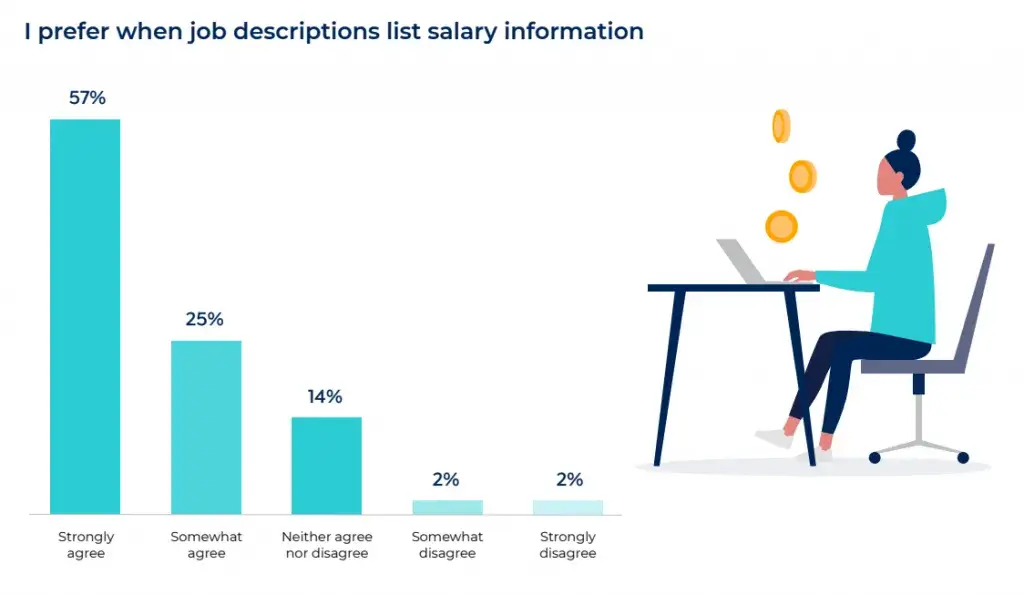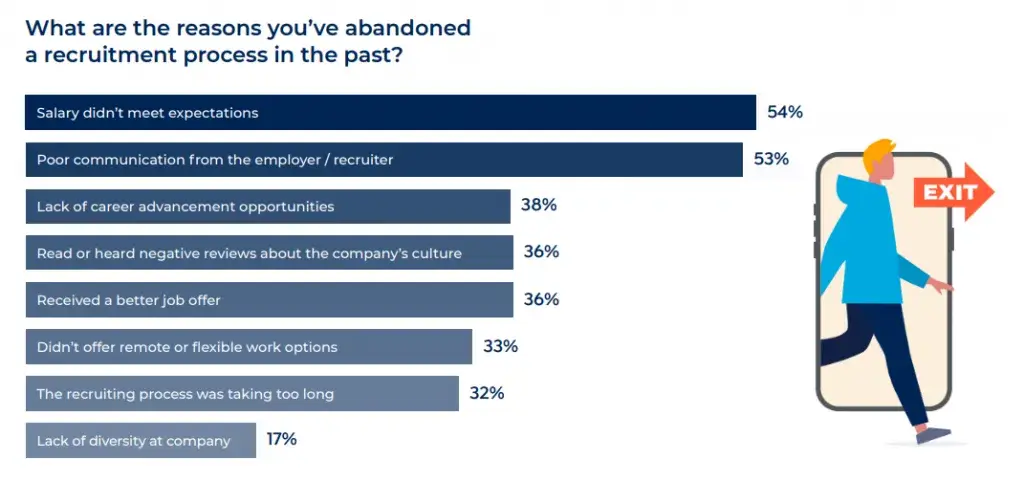Attracting candidates is tough enough these days. But to lose them in the final stages of the hiring process? That truly stings. Since the current talent landscape is dominated by discussion around increased wages and fair pay, we wanted to understand how candidates feel about salary information and pay transparency specifically.
As a part of our 2022 Candidate Experience Report, we asked lots of questions around pay – the importance of pay transparency, when they wanted to know salary information, and how much of a priority pay was to them compared to other key job factors.
We asked nearly 2000 candidates whether they prefer it if a job lists salary information in the job description.

As staggering 57% strongly agreed, with an additional 25% somewhat agreeing that they preferred upfront information on pay. Just 4% of respondents didn’t want salary information to be included in the job description.
Furthermore, the top reason candidates abandoned a recruitment process was misaligned salary expectations, with 54% of candidates citing it for why they’ve removed themselves from consideration.

According to our survey data, it’s clear that pay transparency is top of mind for job seekers. After all, it’s a key component of the equity branch of DE&I initiatives. As the motivation to close the racial and gender pay gaps has continued to gain momentum in the last few years, there’s been an increased expectation from candidates that organizations will be upfront with salary information.
For decades, salary information was a taboo subject, but companies large and small have really come around to the idea of pay transparency. And this shift has come with its benefits. When employers share salary information upfront (for example, including a tight, accurate pay range in the job description), applicants are less likely to drop out later in the recruitment process. This is likely because if they felt the pay wasn’t aligned with their expectations, they wouldn’t bother with submitting an application.
Additionally, many candidates may see pay transparency as a litmus test for how well a company treats their employees. Job seekers see employers that have taken the initiative to meet candidate expectations by sharing salary information – without any legislation requiring them to do so – as organizations that are more committed to their espoused DE&I efforts.
The demand for pay transparency isn’t going to go away, especially as candidate pay confidence stays high. Being upfront about salary information is a simple gesture of goodwill that can help you attract and retain top talent, all while reducing candidate drop-off and improving the candidate experience. And it costs you nothing to implement! Talk about a win-win-win.
Want to discover other ways to improve your candidate experience and attract the strongest candidates? Download your copy of Criteria’s 2022 Candidate Experience Report today.





